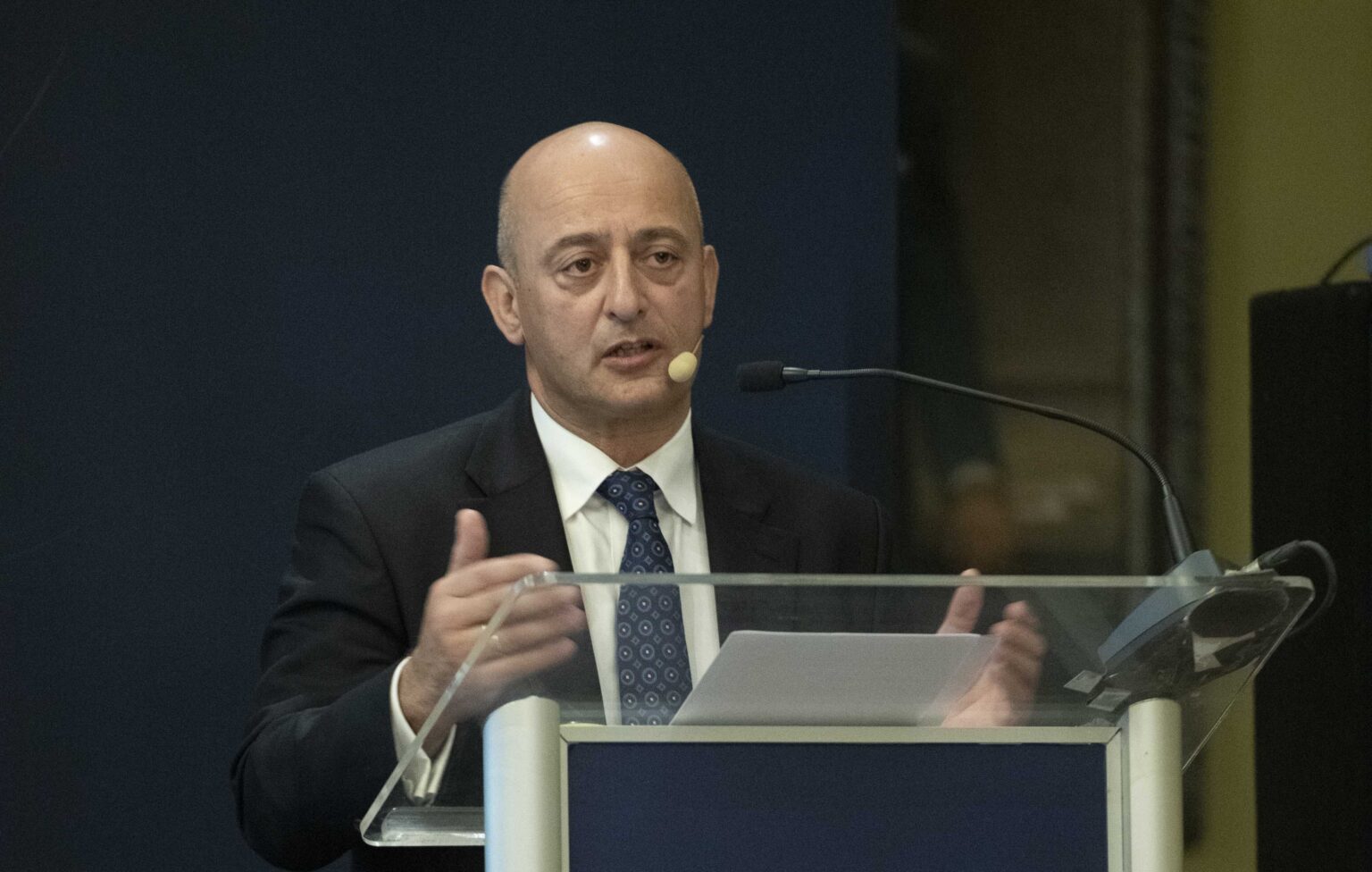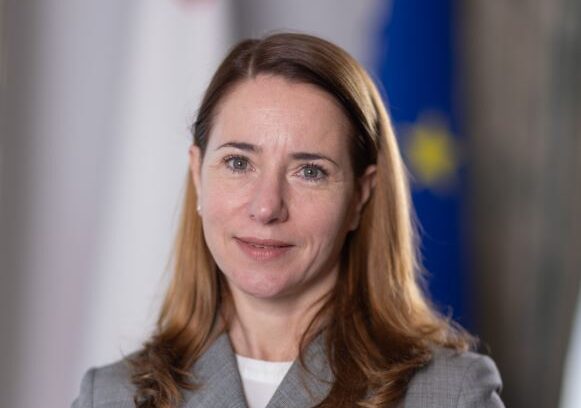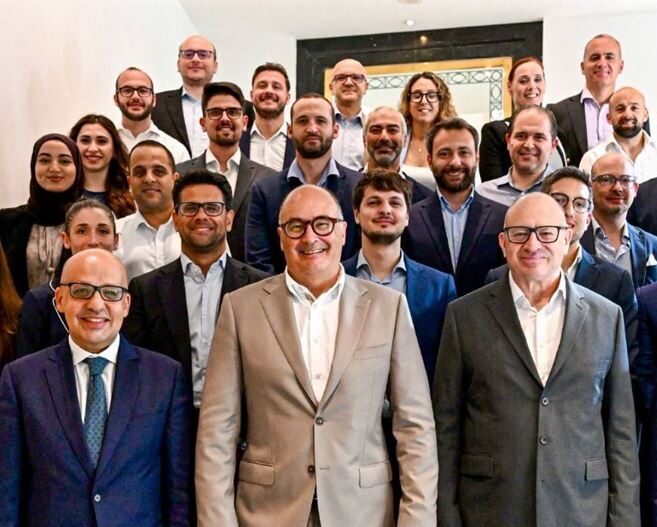Bank of Valletta (BOV) CEO Kenneth Farrugia has called for greater collaboration between stakeholders when it comes to environmental, social, and governance (ESG) efforts, noting that each entity needs to ask whether it is doing enough in this regard.
His comments came during a conference that The Malta Chamber of Commerce, Enterprise and Industry organised in collaboration with BOV, with the aim of exploring the recent and expected economic developments and trends. This was done within the context of the baseline trajectory for the Maltese economy, and the upside and downside risks surrounding this outlook.
Mr Farrugia remarked that he hopes the event proved to be insightful and relevant to attendees’ operations, trusting that it will “inspire meaningful action and drive positive change.”
“As Malta’s leading bank, we are delighted to have co-organised this event with The Malta Chamber as this has enabled us to share our views and thoughts on the national economy and in the process stimulate an interesting exchange with key economic actors,” he explained.
He also stated that in recent decades, Malta’s economy has experienced a number of significant positive developments, despite the challenges that emerged in the process, which have “tested businesses’ resilience.”
Mr Farrugia went on to add that at this juncture, the future strategic thrusts supporting Malta’s economic development must be driven by the critical principle of sustainability within an overarching ESG context. This focus is expected to lead to social wellness and stronger governance.
“We all need to play an active role in shaping the future of our economy and where we constantly need to ask ourselves whether we are doing anything, or enough, in the process,” he said. Mr Farrugia noted that BOV seeks to “remain an important catalyst” in helping to foster “greater engagement and collaboration” between key stakeholders for the benefit of future generations.
During the event, Nick Xuereb, Deputy President of The Malta Chamber, also highlighted a number of key challenges and economic realities that businesses are set to face in 2024.
“We should help and support businesses in improving their efficiency and productivity. As inflation shows signs of decreasing, it is crucial to implement the right measures proactively, positioning ourselves ahead of the curve rather than lagging behind,” he said.
“Since human capital will remain a persistent challenge in 2024, the overarching goal should be to steer our country towards emphasising quality over quantity. Given that our businesses operate in a broader competitive landscape, we cannot afford to ignore external developments,” Mr Xuereb continued.
He added that in this respect, critical investment in digitalisation is “imperative for both the private and public sectors” and thus should be “actively encouraged.”

Malcolm Bray, Senior Manager (Economics) at BOV, said that Malta’s economic growth remained strong in 2023, in contrast with the “sharp deceleration” recorded abroad.
“The current consensus suggests that over the next years, Malta’s economic momentum will continue to exceed that in the euro area. This benign outlook reflects the transformation undertaken over the years, which has made the economy more diversified and thus more resilient,” he explained.
He remarked that geopolitical tensions will continue to create uncertainty, yet this is “compensated for by the fact that the low public debt ratio and the high bank liquidity made it possible to dampen the international energy and interest rate shocks which occurred post-pandemic.”
During a panel discussion on the resiliency of Malta’s economic landscape, The Malta Chamber CEO Marthese Portelli emphasised the concept of imported inflation which is manifesting in various facets within Malta’s economic landscape.
“The Malta Chamber has highlighted several factors contributing to inflationary pressures, including increased air freight and sea transport costs, reliance on imported raw materials, imported labour, and regulatory burdens from the European Commission. Additionally, deficiencies in water and energy infrastructure and traffic congestion exacerbate these pressures,” she said.
Dr Portelli added that The Malta Chamber has been “very vocal on the importance of these multifaceted challenges,” while also providing examples on how to mitigate them.
She emphasised the substantial growth opportunities in current sectors, particularly tourism and manufacturing, which have shown “remarkable resilience.” She pointed out that a key strategy for enhancing productivity within these sectors is to optimise efficiency by “accomplishing more with fewer resources.” This approach enables sustainable growth and also enhances competitiveness and overall economic performance.
Featured Image:
BOV CEO Kenneth Farrugia / The Malta Chamber
Alison Micallef appointed CEO at Malta Development Bank
She steps into the new role effective immediately.
Impact beyond profit: CSR in Malta is a must in 2025
Nowadays, corporate social responsibility can no longer take a backseat in your business's vision.
Malta’s private equity sector urged to seize opportunities at high-level CEO seminar
Panellists highlighted Malta’s potential as a destination for private capital, citing its English-speaking workforce, regulatory accessibility, and strategic location.
Ronald Attard takes on expanded role as Managing Partner for Risk Management at EY Europe Central
He has built experience in management accounting, corporate finance, and mergers and acquisitions.









